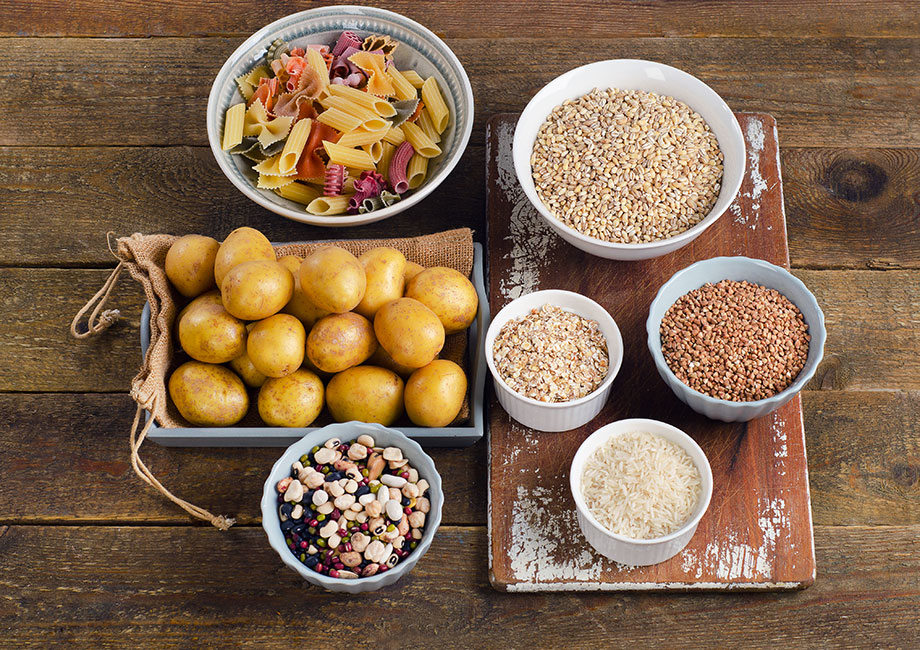We test and review fitness products based on an independent, multi-point methodology. If you use our links to purchase something, we may earn a commission. Read our disclosures.
Protein is the macronutrient that gets the most hype when it comes to building muscle, and rightfully so. Amino acids aren’t called the building blocks of life for nothing! But we can’t forget about carbohydrates and their pivotal role in muscle growth and energy, especially in the world of bodybuilding. Like putting gas in your car, carbohydrates help replenish the glycogen stores1 we use during workouts.
Carbs often get a bad rap, but the truth is—they’re essential to a well-balanced diet and a significant part of maximizing training sessions and post-workout recovery. Still, not all carb sources are created equal. Some serve our bodies better than others, especially when trying to put on lean muscle.
RELATED: Bodybuilding Workouts
Not sure which carbs to add to your grocery list? Not to worry! In this article, I’ll break down the science behind the different types of carbs and highlight the best carbs for bodybuilding.
Medical disclaimer: This article is intended for educational and informational purposes only. It is not intended as a substitute for medical advice. For health advice, contact a licensed healthcare provider.
Simple Carbs vs. Complex Carbs
Carbohydrates serve as the body’s primary source of energy, but not all carbs have the same effect on our energy levels. Carbs can be categorized into two types: simple carbohydrates and complex carbohydrates.
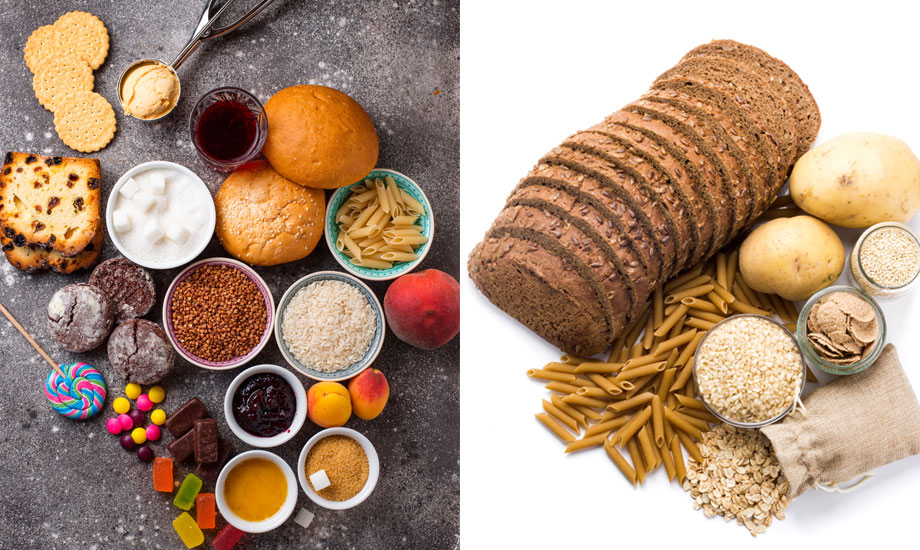
Simple carbs are made up of shorter chains of molecules, so they’re easier to digest than complex carbs. After eating a simple carb, you’ll experience a spike in your blood sugar levels2 followed by a short-lasting energy surge.
Simple carbs are typically foods with low nutritional value, such as:
- Candy
- Sugary drinks
- Baked goods
- Some cereals
- Table sugar
Complex carbs, on the other hand, take a little more effort to digest. As a result, complex carbs will raise your blood glucose levels for more extended periods of time, giving you a longer-lasting energy source2. These food sources are more nutrient-dense than simple carbs. They often contain many vital micronutrients that help support overall health.
Examples of complex carbohydrate sources include:
- Brown rice
- Oats
- Buckwheat
- Legumes
- Barley
Rice
In the world of meal prepping, rice is a staple. Every bodybuilder has probably enjoyed the infamous chicken breast protein and rice combo because it’s somewhat easy to prepare and packs a punch nutritionally. But rice goes well with more than just chicken. This versatile carb mixes well with all kinds of dishes.
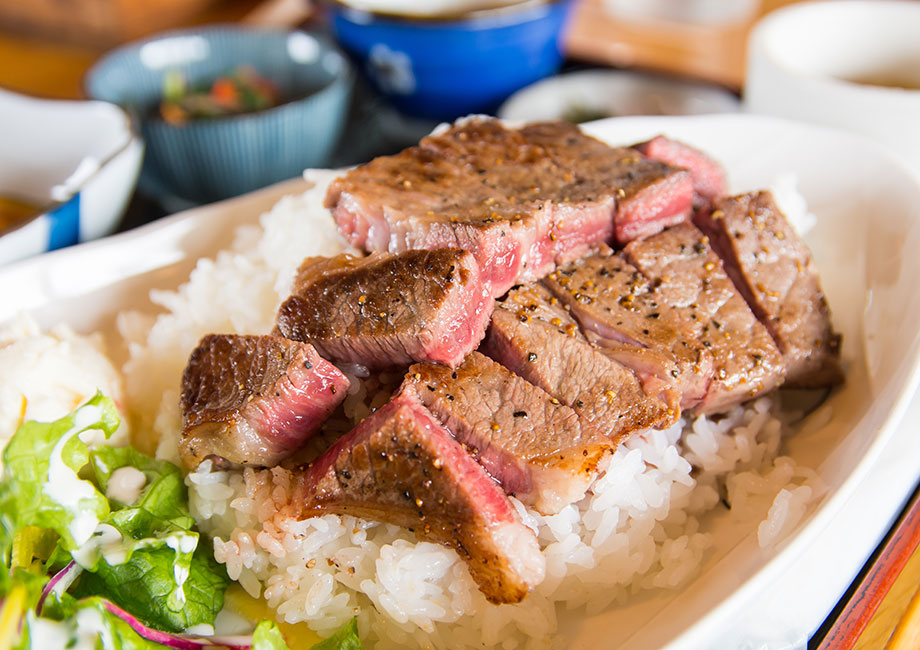
Plus, you have so many varieties to choose from! White rice, brown rice, wild rice, black rice, basmati rice, jasmine rice—with so many options, it’s tough to get bored with your rice game. A cup of cooked white rice3 provides approximately 45 grams of carbs, four grams of protein, and less than a gram of fat.
Rice makes counting macronutrients simple. The nutrition facts may vary by a few grams here and there, but they’re pretty similar across all the rice varieties. You may get a touch more fiber or protein in one versus the other—for example, brown rice is a better fiber source than white—but it’s easy to get those nutrients in other areas of your diet if needed.
RELATED: Best Fiber Supplement
Quinoa
Quinoa is a good source of carbohydrates, but it might be the total package for those who want to build muscle and optimize body composition. Though it’s technically a seed, quinoa is considered a whole grain and a good source of dietary fiber. But its perks don’t end there.
Quinoa is a complete protein containing all nine essential amino acids4 we must obtain from food sources. The most notable amino acid is leucine, the same amino acid found in whey protein that has been shown to promote muscle repair.
RELATED: Best Whey Protein
One cup of cooked quinoa5 will give you about 40 grams of carbs, eight grams of protein, and five grams of fiber. It can accompany lean meats, veggies, beans, and much more. Some lifters even bump the carb content of their salads by adding cold quinoa to the mix.
RELATED: Salad Delivery Service
Fruit
Despite some of the myths surrounding fruit in the bodybuilding community, fruit is essential to a healthy, well-balanced diet and can play a role in reaching your muscle gain potential. Sure, we have to be mindful of portion sizes and the timing of our intake. But isn’t that true of all foods?
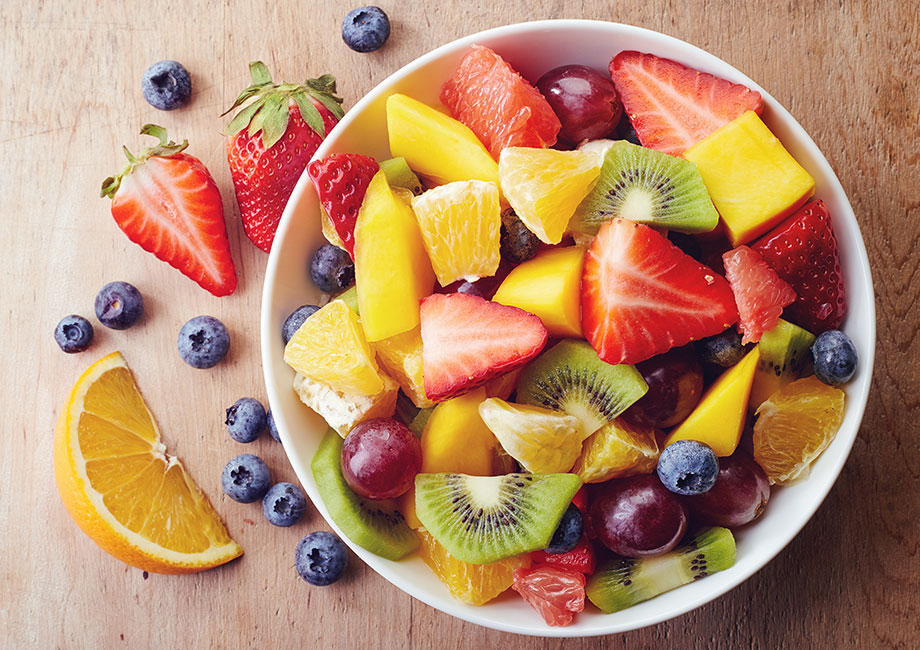
Fruit contains natural sugars that our body can digest easily. Plus, no matter what fruit you choose, studies show6 that it’s bound to be packed with vitamins and minerals that help support immune health, mental focus, and gastrointestinal function, among other avenues of health.
For example, one cup of blueberries7 provides approximately 22 grams of carbs and other important nutrients like vitamin C and potassium. Different fruits will provide a varying amount of carbohydrates and micronutrients, so you should regularly switch up your menu to get a variety in your diet.
Potatoes
Potatoes are another carb source that often gets a bad rap, but they can be an asset to bodybuilders and other athletes. They contain some simple sugars like fructose, glucose, and cellulose but are mostly made of starchy carbs.
Potatoes have a high glycemic index, meaning they release glucose into your bloodstream quickly. For this reason, many bodybuilders turn to potatoes as a post-workout meal to get the glucose they need for rapid recovery. One cup of mashed potatoes8 contains around 30 grams of carbs and a significant amount of potassium, vitamin C, and folate.
Sweet Potatoes
Sweet potatoes can be a great whole-food carbohydrate source to include in your diet. Sweet potatoes are a high-fiber carb packed with vitamin A, copper, potassium, and vitamin C. One medium sweet potato9 baked in the skin provides approximately 24 grams of carbs and around 20% of your daily copper needs.
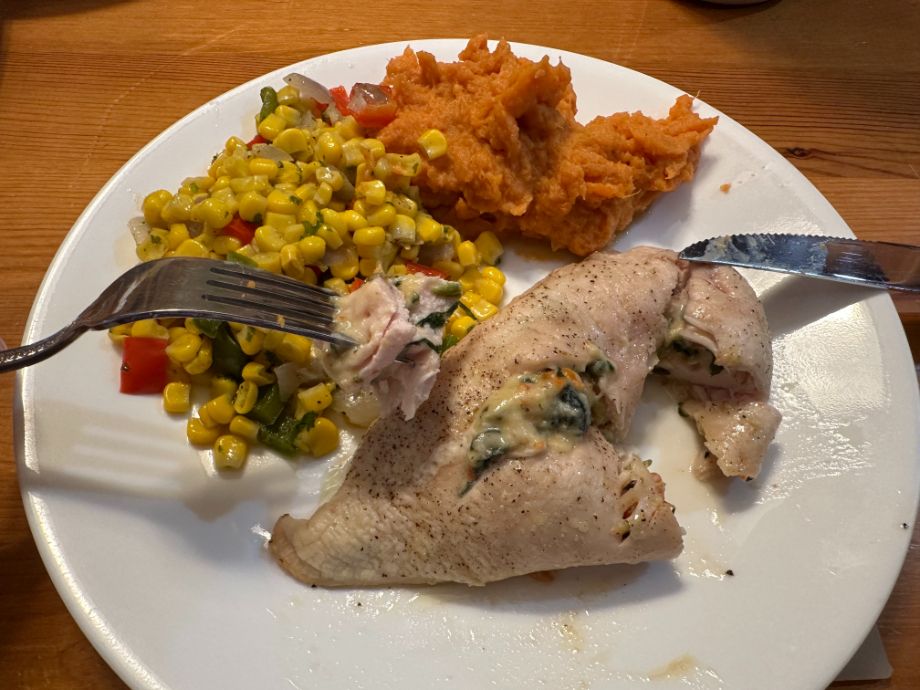
What’s so special about copper? Most of the body’s copper is found in the skeleton and muscle10, which plays a role in many physiological processes. For example, it influences immune function and helps protect against oxidative damage.
Pasta
Pasta is another high-carb option that can help you meet your calorie and macro needs. Making it the base of your dish is a great way to meet your bodybuilding nutritional goals and enjoy a satisfying meal.
RELATED: What Should My Macros Be?
One cup of pasta11 provides 43 grams of carbs, eight grams of protein, and one gram of fat. Embrace your creativity and choose between spaghetti, fettuccine, linguine, rotini, rigatoni, bowtie, and many other pasta types.
Oats
You’ll have to excuse me for a minute while I fangirl over oatmeal because it really is all that and a bag of chips. Not only is it an excellent carbohydrate source, but it’s also packed with protein and soluble fiber. Talk about multitasking. Fiber plays a role in so many avenues of health, including heart and gut health.
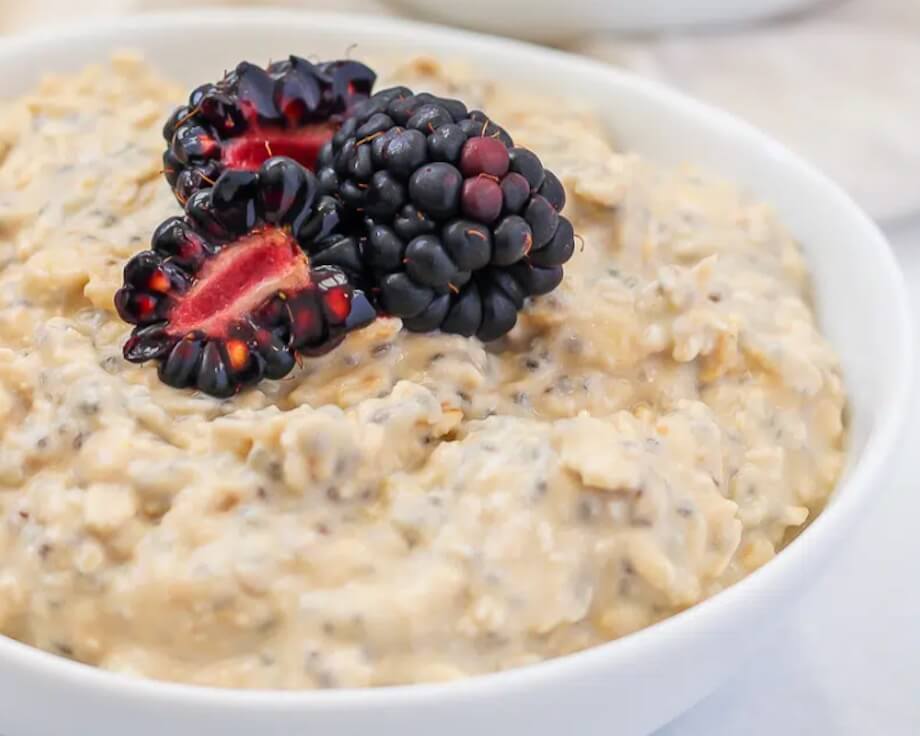
One cup of hearty oatmeal12 provides 58 grams of carbs, 10 grams of protein, and 10 grams of fiber. Plus, oatmeal contains other nutrients like copper, calcium, phosphorus, and vitamin B6. Need to up your protein intake? Mix your favorite protein powder into your bowl of oatmeal for a nutrient-dense, high-protein breakfast!
Breads
When you hear the word carbohydrate, chances are bread is the first thing to come to mind. Bread is a carbohydrate powerhouse and comes in various flavors and textures. You can choose from white, whole wheat, sourdough, Ezekiel, rye, and multigrain bread, just to name a few.
Two slices of whole wheat bread13 provide around 24 grams of carbs, eight grams of protein, and just two grams of fat. Bread might not contain many essential micronutrients, but it can act as a vessel for other bodybuilding staples that do have those vitamins and minerals. Try pairing bread with meat, eggs, cheese, and veggies—who doesn’t love a sandwich? In the world of sports nutrition, bread can be a valuable asset.
Vegetables
“Eat your veggies,” said every dietitian ever. I know, I know—but really, vegetables are a key part of a healthy diet and essential to building muscle mass. As a bodybuilder, it’s critical to hit your carb and other macro goals, but it’s equally important to hit your micronutrient goals, too. Enter vegetables.
Vegetables are low in calories but rich in vitamins, minerals, fiber, and phytochemicals. Whether your goal is bulking or weight loss, veggies can be important in your efforts. For example, one cup of chopped carrots14 provides around 12 grams of carbs and just 53 calories. However, carrots also contain vitamin A, niacin, vitamin B6, and many other nutrients. And it’s not just carrots. Mix it up with a variety of veggies!
RELATED: High-Protein Vegetables
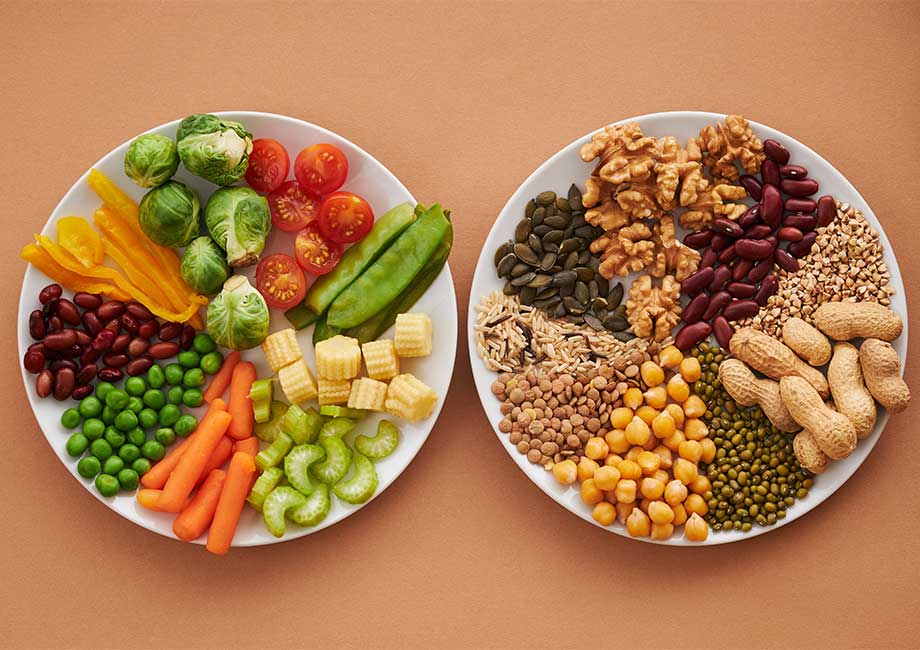
Beans and Lentils
Beans and lentils really pack a punch, making them excellent choices for bodybuilders trying to hit their macros. For instance, one cup of cooked lentils15 provides around 39 grams of carbohydrates and a whopping 16 grams of fiber, not to mention 18 grams of protein!
RELATED: Bodybuilding Meal Delivery
When you need a slow-digesting carbohydrate, beans or lentils will do the trick. The fiber and protein in these little plant-based proteins give your body something else to digest, making the carbs last longer in your system. Plus, they pair well with many other foods, boosting the nutrient profile of your favorite dishes.
What About Carb Supplements?
While it’s best to meet nutrition needs through whole foods when possible, sometimes it’s unrealistic. Whether it’s a busy schedule or increased demands, carbohydrate supplements can fill the gap. Intense physical activity, like a bodybuilder’s training schedule, significantly increases nutrition needs. And if you just can’t seem to eat another bowl of chicken and rice, supplements may help boost your carb intake.
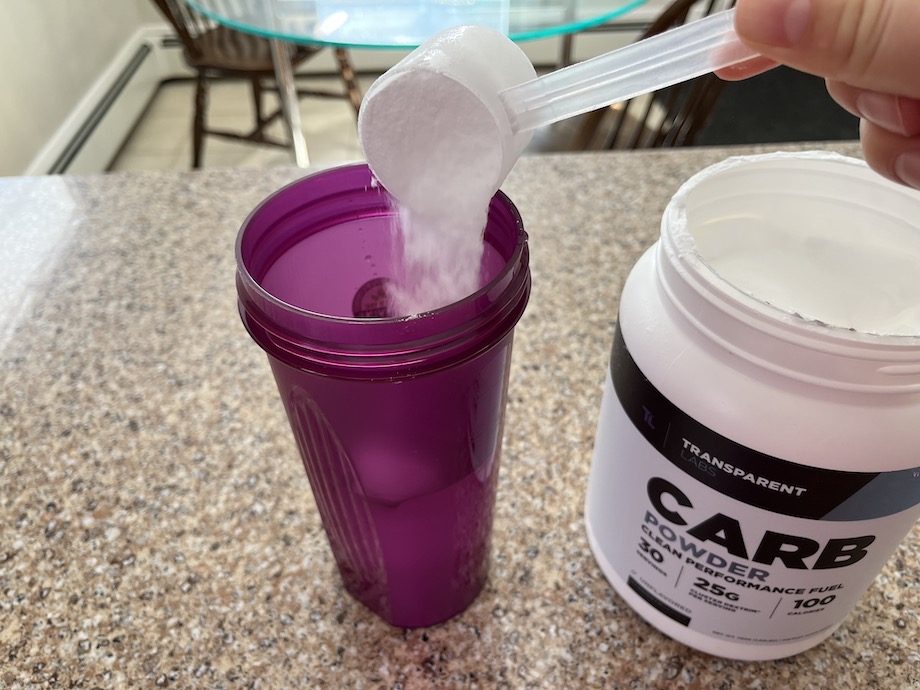
When searching for the best carb supplement, look for brands backed by clinical trials and tested by third parties. It’s also important to research the supplement’s carb source, as different sources may serve you better pre-workout versus post-workout. Common sources include cluster dextrin, pea starch, and dextrose.
And of course, of course, of course, be mindful of the carbs per serving. Unused carbs will be stored as body fat and may work against your goals if you’re trying to lose weight. Not sure how many carbs you need per day? A registered dietitian can calculate your needs based on your training demands and medical history.
Here are a few carb supplement products we recommend:
- Xwerks Motion
- Transparent Labs Carb Powder
- EFX Sports Karbolyn Fuel
- Jacked Factory Carb Surge
- Vitargo Carb Powder
- Post JYM Fast-Digesting Carb
- Huge Supplements Formula XII
- NOW Sports Waxy Maize
- Bulk Supplements Maltodextrin
Best Carbs for Bodybuilding: Final Thoughts
Carbohydrates are very misunderstood, but in some ways, they’re the star of the macro show. And there’s no denying their influence in bodybuilding. Like putting gas in your car, carbs break down into glucose to provide you with energy so you can tackle your workout and anything else your day throws at you.
Carbs are also essential for muscle growth and offer many other benefits, encouraging us to mix them up and take advantage. To summarize:
- Carbs help us replenish depleted glycogen stores.
- Simple carbs digest quickly, whereas complex carbs take longer.
- Quinoa is a delicious carbohydrate source containing notable amounts of protein and fiber.
- All rice varieties can help support your carbohydrate needs.
- Sweet potatoes are a good source of copper.
- Fruits and veggies provide carbohydrates along with many essential micronutrients.
- Carb supplements may help you meet increased carbohydrate needs at the height of your training schedule.
Best Carbs for Bodybuilding: FAQs
What’s the healthiest type of carb to eat?
Look for carbohydrates that are rich in protein and fiber.
Are simple carbs or complex carbs better for building muscle?
Complex carbs are typically more beneficial for building muscle as they’re more nutrient-dense.
What carbs should bodybuilders avoid?
While most foods can fit into a well-balanced diet, bodybuilders may need to be more mindful of simple carbs. Simple carbs like candy, cake, and sugary drinks offer little-to-no nutritional value.
How many carbs should a 200-pound bodybuilder eat?
The answer to this question will vary depending on several factors, including training demands, fitness goals, and medical needs. Recent research16 states that bodybuilders average a range of about 2.8 to 7.5 grams of carbs per kilogram of body weight daily with previous reviews recommending 8 to 10 daily grams per kilogram of bodyweight.
Medical disclaimer: This article is intended for educational and informational purposes only. It is not intended as a substitute for medical advice. For health advice, contact a licensed healthcare provider.
References
- Murray B, Rosenbloom C. Fundamentals of glycogen metabolism for coaches and athletes. Nutr Rev. 2018 Apr 1;76(4):243-259. doi: 10.1093/nutrit/nuy001. PMID: 29444266; PMCID: PMC6019055.
- Holesh JE, Aslam S, Martin A. Physiology, Carbohydrates. [Updated 2023 May 12]. In: StatPearls [Internet]. Treasure Island (FL): StatPearls Publishing; 2023 Jan-. Available from: https://www.ncbi.nlm.nih.gov/books/NBK459280/
- FoodData Central. Rice, white, long-grain, regular, enriched, cooked.
- National Research Council (US) Subcommittee on the Tenth Edition of the Recommended Dietary Allowances. Recommended Dietary Allowances: 10th Edition. Washington (DC): National Academies Press (US); 1989. 6, Protein and Amino Acids. Available from: https://www.ncbi.nlm.nih.gov/books/NBK234922/
- FoodData Central. Quinoa, cooked.
- Dreher ML. Whole Fruits and Fruit Fiber Emerging Health Effects. Nutrients. 2018 Nov 28;10(12):1833. doi: 10.3390/nu10121833. PMID: 30487459; PMCID: PMC6315720.
- FoodData Central. Blueberries, raw.
- FoodData Central. Potatoes, mashed, ready-to-eat.
- FoodData Central. Sweet potato, cooked, baked in skin, flesh, with salt.
- U.S. Department of Health and Human Services. (2022, October 18). Office of dietary supplements – copper. NIH Office of Dietary Supplements. https://ods.od.nih.gov/factsheets/Copper-HealthProfessional/
- FoodData Central. Pasta, cooked.
- FoodData Central. Cereals, QUAKER, QUAKER MultiGrain Oatmeal, dry.
- FoodData Central. Bread, whole wheat, commercially-prepared.
- FoodData Central. Carrots, raw.
- FoodData Central. Lentils, mature seeds, cooked, boiled, with salt.
- Henselmans, M., Bjørnsen, T., Hedderman, R., & Vårvik, F. T. (2022). The Effect of Carbohydrate Intake on Strength and Resistance Training Performance: A Systematic Review. Nutrients, 14(4), 856. https://doi.org/10.3390/nu14040856
Further reading

Inertia Wave is designed as a lighter, more portable battle ropes alternative. We've tested and reviewed a pair over the past three months both in house and by others and although we initially were extremely skeptical, we do think it's a great replacement for the ever-popular and overly-bulky battle ropes. If you're low on space, enjoy portability, and want a great conditioning tool, the Inertia Wave is a serious option to consider. Read more

Your body naturally produces enzymes, so do you need supplements for better digestion? An RD breaks it down in this clear and concise digestive enzymes guide. Read more

The best muscle recovery tools help you bounce back from tough workouts. We’ve got the scoop on massage tools and more. Read more

A health coach shares the top seven elliptical benefits and why you should get one for your home gym. Read more

